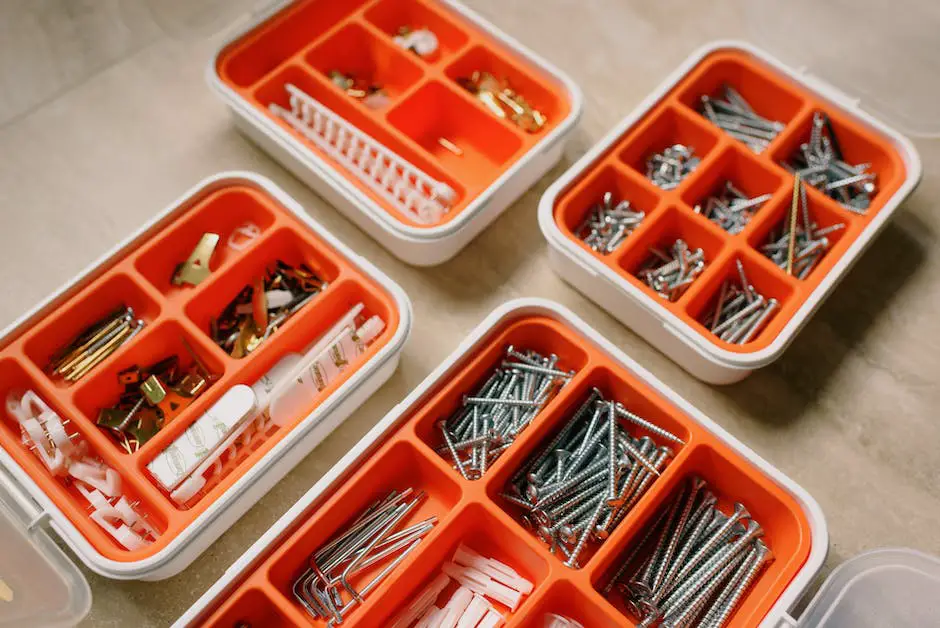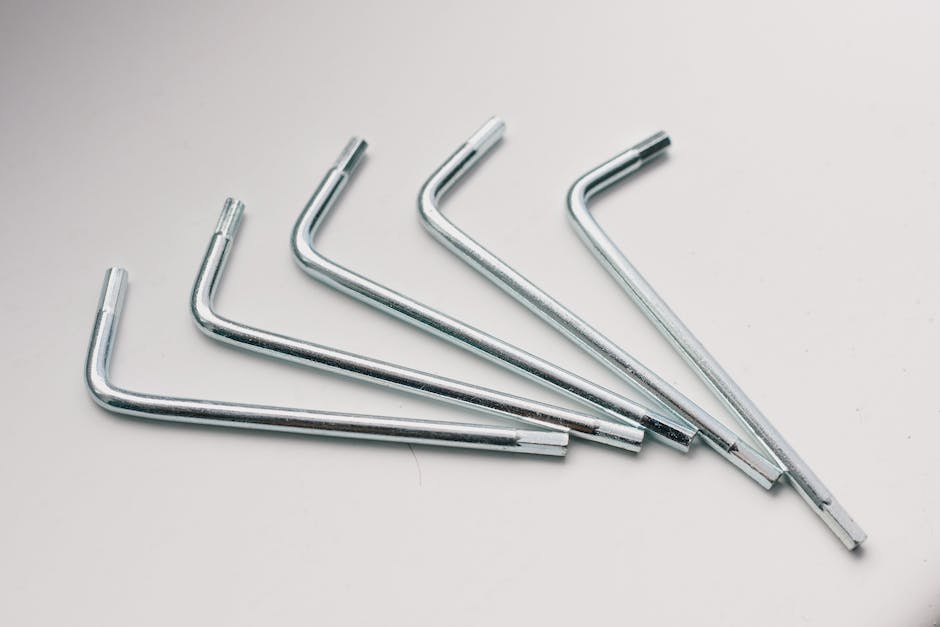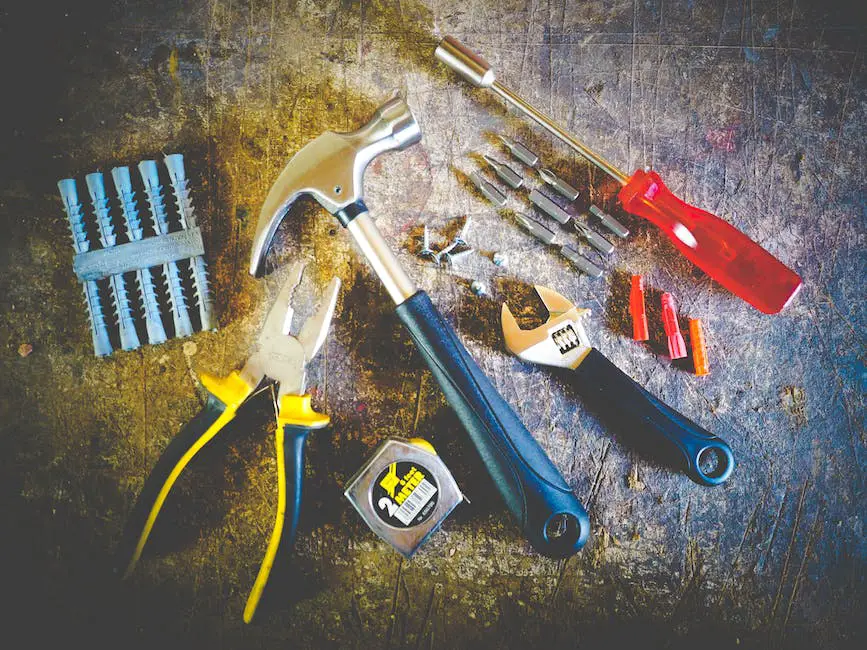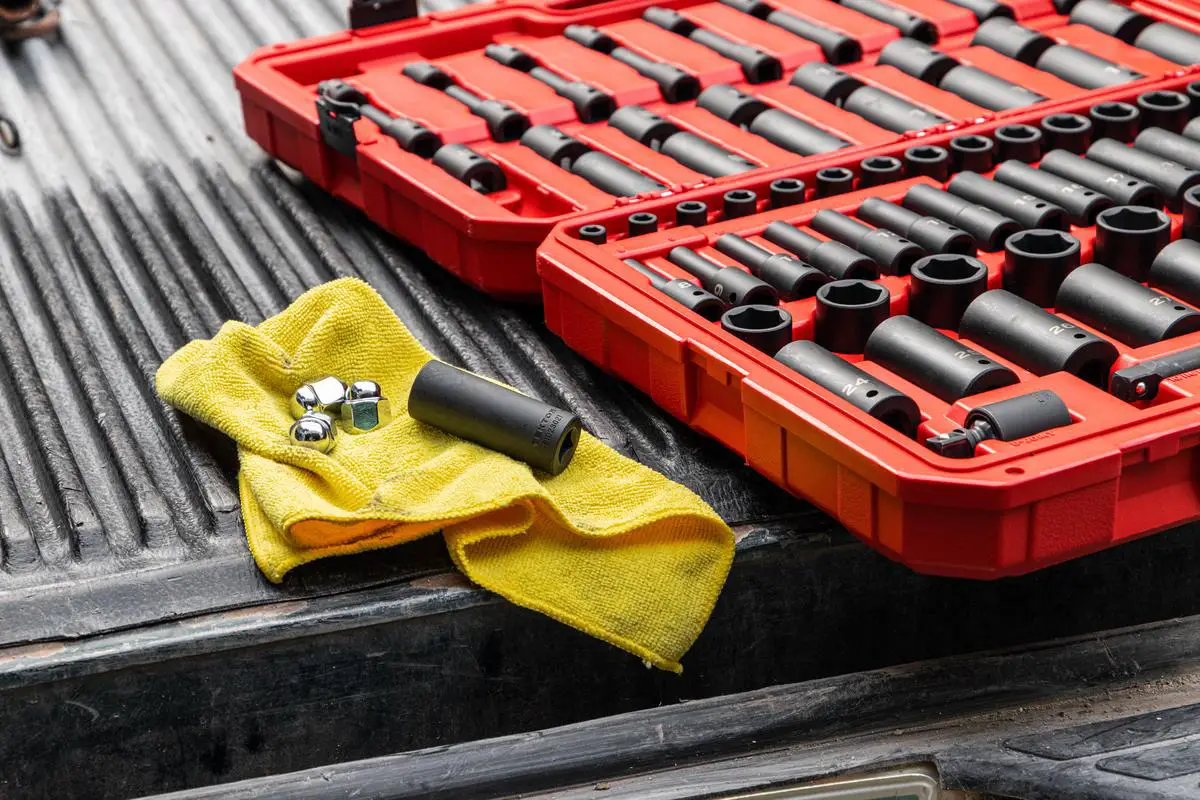There’s an art and science to creating or crafting long-lasting structures or products, and it all hinges on the elements that hold everything together – fasteners. These humble yet essential pieces, which include screws, bolts, nuts, and rivets, are the unsung heroes in successful crafting projects.
As hobbyists, understanding the vast world of fasteners broadens your horizons, allowing you to select the best tool for your projects.
This exploration will deepen your appreciation for the importance of proper fastening, guide you in choosing the right fastener, and introduce you to the crucial arena of fastener maintenance and care.
Types of Fasteners
“Fasten Up, Hobbyists: Mastering the Incredible World of Fasteners!”
Welcome, fellow hobbyists! You’ve entered the beautiful, strangely satisfying world of fasteners – a world that often goes unnoticed but is irreplaceably vital in readymade projects or DIY endeavors.
Fasteners, though small and seemingly insignificant, are the unsung heroes that help us build, create, fix, and hold together our million-dollar ideas.
Their invention has certainly revolutionized our creative landscape, making DIY tasks easier, more secure, and aesthetically appealing.
Let’s dive straight into the key kinds of fasteners that every hobbyist should be familiar with:
- Nails: The staple of fasteners, nails have been used for literally thousands of years. They come in various sizes and shapes, typically designed for fixing wooden elements together. Finishing, framing, masonry, roofing, and box nails are some examples that hobbyists may come across frequently.
- Screws: One might argue that the screw is the nail’s grown-up equivalent. They’re reusable, which makes them a favorite among DIY enthusiasts. Wood screws, machine screws, sheet metal screws, and self-drilling screws are some types you might want to have handy in your toolbox.
- Bolts: Bolts are heavy-duty fasteners and ensure a more robust connection, often used in conjunction with nuts. Common types include carriage bolts, hex bolts, flange bolts, and eye bolts.
- Nuts: What good is a bolt without its trusty partner, the nut? They correspond with bolts for secure fastening and offer maximum grip. The types of nuts hobbyists come across are cap nuts, hex nuts, lock nuts, and wing nuts.
- Washers: These little flat pieces are highly crucial and work symbiotically with screws or bolts to distribute pressure and prevent any likelihood of pollutants or corrosion seeping in. Plain, split, spring, and fender washers are types that every hobbyist should without fail acquaint themselves with.
- Anchors: These are used mostly to attach objects to concrete, ensuring a solid hold. Depending upon the project, hobbyists may require one of these types: wedge anchors, drop-in anchors, or sleeve anchors.
- Rivets: Rivets fasten two surfaces together permanently, making them harder to remove. This means they’re fantastic when you desire a permanent bond. They compose of blind rivets, semi-tubular rivets, and solid rivets.
- Staples: By now, everyone has probably used a manual stapler. Ideal for binding light materials like paper, plastic, or thin wood, staples play an essential role in crafting hobbies.
Fasteners might sound simple on the surface, but the world beneath is incredibly significant and diverse. These little heroes known as nails, screws, bolts, nuts, washers, anchors, rivets, and staples have made our DIY dreams come true with their amazing ability to hold our world together.
Remember, it’s the smallest details that truly fasten the success of your project, hobbyists. Stay tuned for more insights from the exciting world of hobbying and DIY!

The Importance of Fasteners
Topic: Fasteners: The Unsung Heroes of Hobby Projects
Have you ever stopped mid-project to marvel at the small, seemingly insignificant little pieces that hold everything together?
The quiet champions that never get the limelight, yet are crucial for the integrity of any hobby project? Yes, we’re talking about none other than fasteners. Those screws, nails, bolts, and anchors are the quiet workhorses of the hobby world – and here’s why they’re so incredibly essential.
First up – stability is the name of the game in any project. The durability and longevity of the finished piece rely heavily on how effectively it has been fastened together.
Without the correct use of fasteners, there’s a risk of parts shifting, breaking or even falling apart over time. Accurate fastening ensures the sturdiness and resilience of the completed project, making it withstand everyday use and the test of time.
Fasteners are also quite handy when it comes to repairability and modification. Say, a piece of wooden furniture or a hobby plane, properly fastened, can be disassembled easily for repairs, modification or upgrade.
When using nails or adhesives isn’t feasible or desirable, screws and bolts become the go-to fasteners.
Achieving a clean look in a DIY project is not always an easy ballgame. Fasteners play an impressive role in crafting that neat and sleek appearance.
One of the elegant members of the fastener family, hidden or pocket-hole screws, truly shine in this arena. These tiny geniuses are drilled at an angle into a project allowing for unspoiled, uninterrupted lines.
While fasteners may seem mundane at first glance, it’s compelling to discover the immense array of options available. From biodegradable ecological fasteners to heat-threaded screws designed to resist harsh environments, innovation thrives brightly in this industry.
Survey the fastening sections at a local hobby shop, and you’ll find intriguing variations in materials, thread arrangements, screw head types and so forth tailored to diverse project needs and challenges.
Indeed, it’s awe-inspiring to observe how these tiny objects contribute massively to project performance and appearance, subtly motivating the creative energies of hobbyists across the globe.
Next time you embark on a hobby project, give a nod to the behind-the-scenes magic that fasteners bring to the table. So, hobbyists, remember – pay attention to your fasteners. They may be small, but they unquestionably don’t lack in might!

How to Choose the Right Fastener
Selecting the Best Fastener for Your Project
Whether embarking on a simple hobby project or executing a complex DIY home improvement task, understanding the intricacies of fastener selection is crucial. This guide is designed to help you navigate those details and select the best fastener for your specific project.
1. Material Matter:
One of the first factors to consider is the material of the objects you’re connecting. For instance, woodworking projects will require different fasteners than metal or plastic projects.
While screws are most commonly used in wood, bolts or rivets may be a better match for metal. Always consider your material before choosing a fastener.
2. Size Selection:
When it comes to fasteners, size truly matters! The length and diameter of the fastener must correlate to the thickness of your materials.
Too long, and it can poke out the other side; too short, and it may not provide sufficient hold. Always measure the combined thickness of your materials and choose a fastener that’s long enough but not excessively so.
3. Load Bearing Capacity:
Fasteners are designed to bear loads, and selecting a fastener without considering the load it will bear can result in a weak connection.
For instance, a heavier load may need a bolt, while a light load could suffice with a screw. The rule of thumb is, “the heavier the load, the stronger the fastener needed.”
4. Environmental Factors:
Will your project be exposed to weather, high temperatures, or chemicals? If so, these elements can affect the durability of your fasteners. For corrosive or high-temperature environments, stainless steel or zinc-coated fasteners might be the best choice.
5. Fastener’s Head Style:
The head style of your fastener can impact the strength of your connection and the finish of your project. Flat heads are great for a smooth finish, while hex heads provide more torque when tightened. Think about what you want your finished project to look like and how strong it needs to be.
6. Thread Style:
There are different thread styles to consider. Coarse threads are typically used in softer materials like wood, while fine threads work well on harder materials.
Further, some fasteners, like drywall or self-tapping screws, come with special threads designed for specific applications.
7. Require Special Tools?
Certain fasteners might require special tools for installation. Before deciding on a fastener, make sure you have the appropriate tools to install it effectively.
While there isn’t a one-size-fits-all fastener for every project, these considerations will help you navigate the impressive array of fasteners available.
By keeping these factors in mind, you’ll be better equipped to create durable, reliable, and aesthetically pleasing projects. Remember: The key isn’t just quantity, it’s quality — and that perfect fastener is out there, waiting to hold everything together!

Fastener Maintenance and Care
Continuing along, let’s delve into the subtle but critical process of maintaining and caring for fasteners, that often overlooked yet essential element of any project.
So, to begin, it’s all about vigilance! Regularly checking the fasteners incorporated in any project is the starting point. A loose screw, nail, or bolt might not seem like a big issue, but if left unchecked, could potentially lead to structural failure or even damage. Acting quickly not only ensures the project stays intact but also extends the lifespan of the fasteners themselves.
Now onto the nitty-gritty – Rust. This pesky chemical reaction is the doom of many a fastener. Apply a layer of anti-rust or corrosion-resistant spray on metal fasteners to prolong their life and maintain their integrity.
If a fastener has already rusted, swift replacement is the best course of action to prevent spreading.
Let’s not overlook cleaning. Dust, grime, and other debris can compromise the functionality of a fastener. A straightforward wipe with a clean, dry cloth can make a world of difference.
Remember not to use any harsh cleaning chemicals that can potentially damage the material of the fasteners.
The type of material is also vital in the maintenance of a fastener. For instance, stainless steel fasteners require minimal maintenance due to their corrosion-resistant properties, while brass or bronze fasteners may need additional care. It’s all about understanding the material-specific requirements!
It is also important to consider the use of lubricants. Fasteners often come under strain or friction, which can lead them to wear out faster. Using a suitable lubricant can minimize this wear and tear, ensuring the fasteners stay reliable longer.
Lastly, let’s consider the art of storage: Fasteners need to be stored correctly when not in use. A dry, cool place works best. Moreover, segregating them according to their types helps in avoiding damage and confusion, while also making it easier to find the correct fastener when needed.
Though minute in comparison to other elements of a project, the correct maintenance of fasteners can have a large impact. Often, it’s the small details that matter the most; something all true hobbyists know too well.
So next time, don’t overlook this humble hero. Take some time out to care for those fasteners and watch as they faithfully serve project after project with tenacity and strength.

Photo by tekton_tools on Unsplash
Having a reliable grasp of the specifics about various fasteners, their importance, appropriate selection, and proper maintenance, equips you with a robust toolset for any crafting or DIY endeavor.
It enhances the stability, durability, and aesthetic appeal of your projects, while simultaneously increasing the longevity of your fasteners.
Embrace these insights about screws, bolts, nuts, and rivets, and let this knowledge propel your crafting skills to greater heights. To the untrained eye, it may seem insignificant, but as proficient hobbyists, it’s clear, the power is in the fastening.


